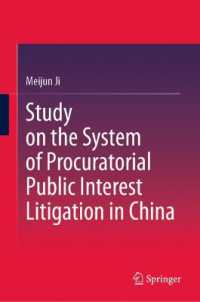- ホーム
- > 洋書
- > 英文書
- > Nature / Ecology
Full Description
This book examines how institutional and environmental features in neighbourhoods can contribute to social resilience, highlighting the related socio-demographic issues, as well as the infrastructure, planning, design and policies issues.








